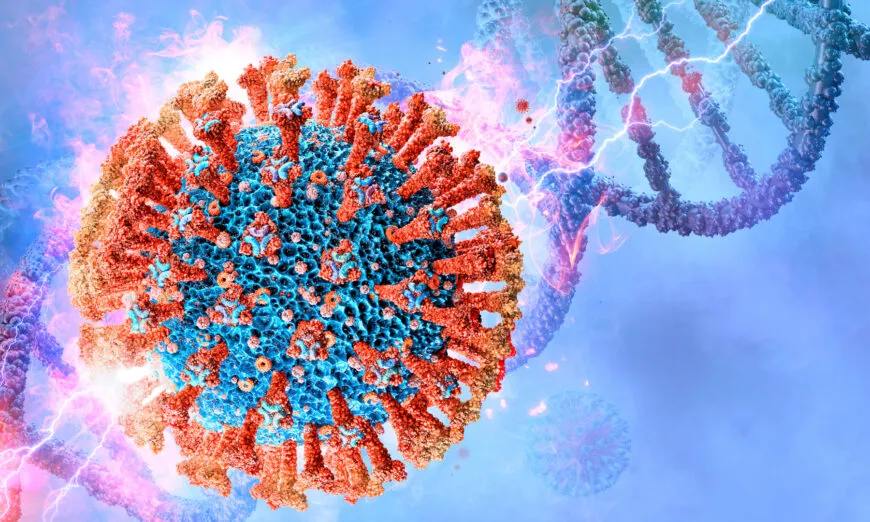Table of Contents
Journalist Tracey Spicer has lately been taking to Twitter to virtue-signal that she is not, all appearances to the contrary, virtue-signalling. Nosiree, when Spicer is giving you the Karen-Death-Stare because you’re not wearing a mask like she is, it’s not because she’s a self-obsessed, upper-middle-class, middle-aged woman. It’s because she has “Long Covid”, donchaknow.
Which is as good as saying, the evidence suggests, that she is just a self-obsessed, upper-middle-class, middle-aged woman.
There are three notable things about “Long Covid”.
First, it’s actually nothing that new. Post-viral fatigue and so on is long documented in medical literature.
If you are naïve enough, as I have been, to comment along the lines of ‘isn’t Long Covid just a form of post-viral syndrome?’ you are met with the blank stare that seems to be so prevalent among the Covid orthodox or with indignation because the person you are speaking to has either had it, got it or knows someone who has it. As if that settled the argument.
The Conservative Woman
Secondly its symptoms are so vague and ill-defined that “Long Covid” could be almost anything.
A recent review from the University of Minnesota indicates, after reviewing nearly 300 scientific articles on long Covid, that researchers in the field are not adhering to any standard definition of the purported condition. […] Check the NHS website and do a self-diagnosis; you will almost undoubtedly discover that you have long Covid.
Finally, what is new about it is that it’s awfully selective.
Long Covid also holds a special appeal for the indolent and adolescents (often the same thing in my experience) with many teenagers who had not even had Covid reporting that they had long Covid. Its prevalence in middle-aged women may simply be the purported symptoms being confused with the onset of menopause.
The Conservative Woman
This is not just conservative grousing, or “misinformation”. It’s science. Not The Science™, but science.
In a recent survey of long Covid users, led by the University of Southampton, the average age of people replying was 46.5 while 82.5 per cent were women.
I’m sure it’s just coincidental that Tracey Spicer, “Long Covid” sufferer par excellence, is a woman in her mid-50s.
Symptoms of the condition are vague and overlap considerably with those experienced by women during perimenopause and menopause, such as fatigue, muscle aches, brain fog and difficult sleeping.
Dr Louise Newson, the founder of Newson Health Research and Education, said: “There is no diagnostic test for long Covid and the symptoms are often very similar to menopause, brain fogs, reduce stamina, tiredness and joint pains […]
The largest global study to date on long Covid – by Johnson & Johnson, which analysed research on 1.3 million people – found that women are 22 per cent more likely than men to report ongoing symptoms, with the chance increasing with age.
Telegraph UK
According to Britain’s Office for National Statistics, the vague symptoms of “Long Covid” must be present at least four weeks after a Covid infection.
For some brave sufferers, though, no Covid infection appears to be necessary. Yes, “Long Covid” is such a devilishly tricky little condition that it can even strike people who’ve never had Covid.
[A] paper in the Journal of the American Medical Association’s (JAMA) Network Open looked at “post–Covid-19 condition (PCC) in young people after mild acute infection” to find how common it was and to find risk factors. Participants were aged between 12 and 25.
The authors offer this straightforward conclusion: “PCC was not associated with biological markers specific to viral infection.” That is, participants were equally likely to suffer from ‘Long Covid’, whether or not they had suffered from acute Covid-19.
The researchers concluded that Long Covid is predicted by “initial symptom severity” and, intriguingly, “psychosocial factors”.
The Daily Sceptic
Those “psychosocial factors” no doubt include teenagers’ preternatural laziness and tireless dedication to finding any old excuse to lie in bed all day.
The only group lazier and more work-shy than teenagers are public servants.
Well, guess what?
In a Civil Service survey carried out over six weeks in September and October, staff were asked whether they would describe themselves as experiencing “long Covid” – battling mysterious symptoms more than four weeks after first getting the virus. According to data published last week 10.8 per cent answered “yes”. This compares to ONS data finding 3.3 per cent of people living in UK households said they were experiencing self-reported “long Covid” symptoms. So, for some reason civil servants are more than three times as likely to suffer “long Covid” as the rest of us.
Guido Fawkes
None of this means, of course, that a genuine, post-viral syndrome following Covid infection doesn’t affect a small number of people. I’ve experienced post-viral syndrome (following a nasty flu about a decade ago) and so know that it can be real enough.
What it does mean is that, yet again, a small number of people with a debilitating condition are being trampled by a bandwagon-jumping horde, driven by a hysterical media hype.








![[The Good Oil] March 2026 Political Poll](https://images.unsplash.com/photo-1540910419892-4a36d2c3266c?crop=entropy&cs=tinysrgb&fit=max&fm=webp&ixid=M3wxMTc3M3wwfDF8c2VhcmNofDk1fHx2b3Rpbmd8ZW58MHx8fHwxNzIyMzkxNTI4fDA&ixlib=rb-4.0.3&q=80&w=1304)
